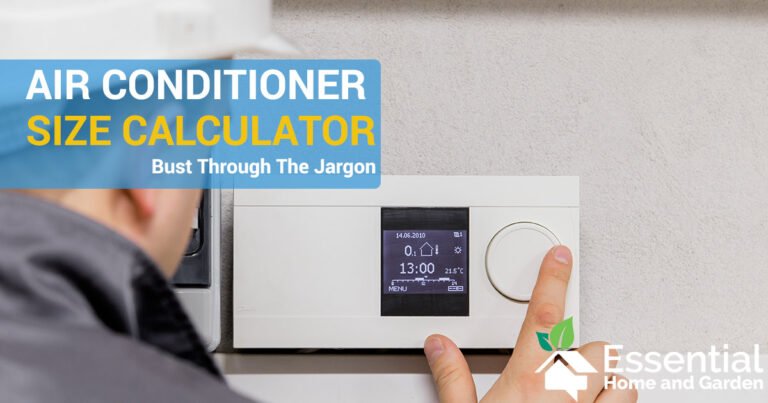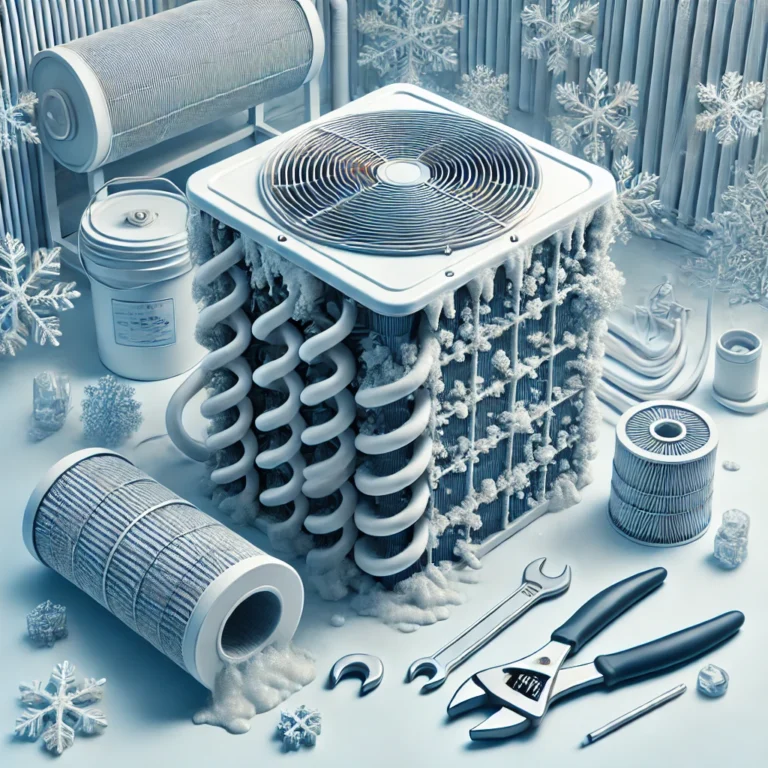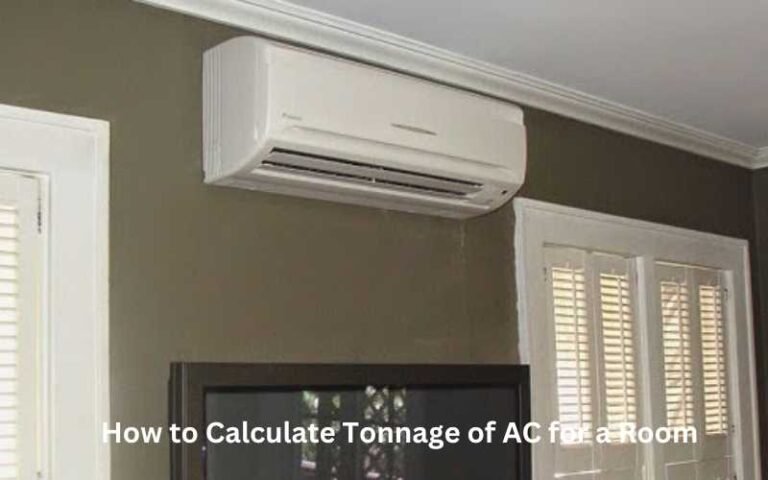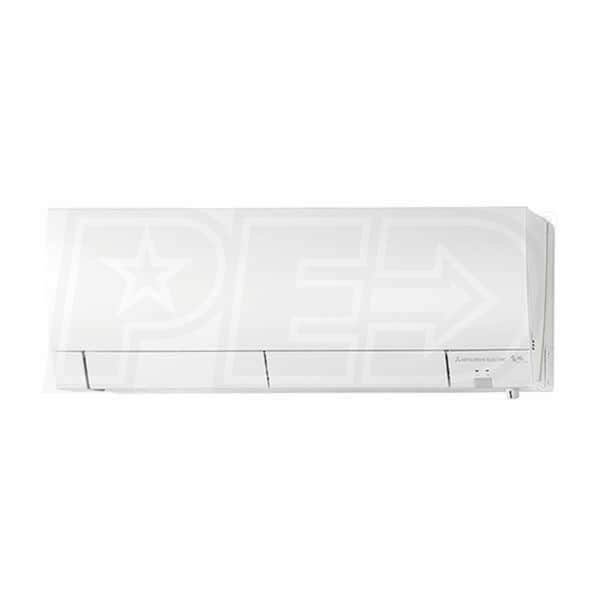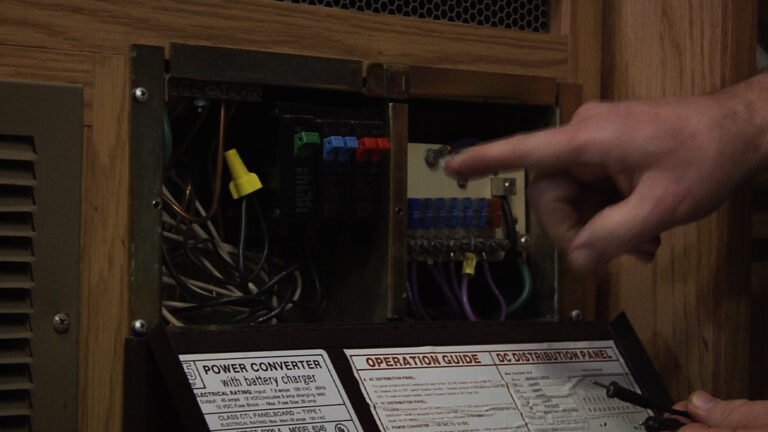What Is a Mechanical Air Conditioner
A mechanical air conditioner is a device that helps to cool or heat a space by circulating the air within it. The device typically contains a fan, evaporator coils, and a compressor.
The fan draws in the outside air and circulates it over the evaporator coils, which remove the heat and cool the air. The cooled air is then blown back into the space to lower the temperature. Mechanical air conditioners are commonly found in window units and feature analog controls for adjusting the temperature settings.
They are known for their simplicity and reliability, making them a popular choice for cooling smaller spaces.
Overview Of Mechanical Air Conditioners
A mechanical air conditioner is a device that circulates and cools or heats the air within a space. It typically includes a fan, evaporator coils, and a compressor to remove heat from the air and cool it down. Mechanical air conditioners often have analog controls.
Benefits include easy operation and affordability.
Mechanical air conditioners are essential cooling systems used to maintain comfortable indoor temperatures. These systems work by removing heat and humidity from the air, leaving behind cool and dry air. Mechanical air conditioners consist of various components that collaborate to provide optimal cooling efficiency.
Let’s explore the definition, purpose, working mechanism, and components of these air conditioning units further.
Definition And Purpose Of A Mechanical Air Conditioner
A mechanical air conditioner is a device designed to cool the air in an enclosed space by removing heat and humidity. It operates using a refrigeration cycle that allows the system to cool the indoor air consistently. The primary purpose of a mechanical air conditioner is to create a comfortable environment by regulating the temperature and humidity levels.
How Mechanical Air Conditioners Work
Mechanical air conditioners work through a simple yet effective process known as the refrigeration cycle. This cycle involves the circulation and transformation of refrigerant, which absorbs heat from the indoor air and releases it outside. Here is a step-by-step breakdown of how mechanical air conditioners operate:
- The compressor pressurizes the refrigerant, raising its temperature and converting it into a high-pressure gas.
- As the hot gas flows into the condenser coil, it releases heat to the outside environment and condenses into a high-pressure liquid.
- The liquid refrigerant then moves into the evaporator coil, where it evaporates into a low-pressure gas.
- During evaporation, the refrigerant absorbs heat from the indoor air, cooling it down significantly.
- Finally, the cooled air is blown into the room while the refrigerant returns to the compressor to repeat the cycle.
Components Of A Mechanical Air Conditioner
Mechanical air conditioners consist of several key components that work together to ensure efficient cooling. These components include:
- Compressor: This vital component pressurizes the refrigerant and initiates the refrigeration cycle.
- Condenser Coil: The condenser coil helps transfer heat from the refrigerant to the outside environment, enabling the refrigerant to condense into a liquid.
- Evaporator Coil: The evaporator coil facilitates the heat exchange process, absorbing heat from the indoor air as the refrigerant evaporates.
- Expansion Valve: The expansion valve regulates the flow of refrigerant into the evaporator coil, maintaining the correct pressure and temperature levels.
- Fan: The fan circulates air across the evaporator and condenser coils, promoting heat transfer and enhancing the cooling process.
- Thermostat: The thermostat monitors and regulates the indoor temperature, allowing users to set their desired cooling level.
Now that you have a clearer understanding of mechanical air conditioners, their purpose, working mechanism, and components, you can make informed decisions about their usage and maintenance. Keep in mind that regular maintenance and timely repairs are essential to ensure optimal performance and longevity of your mechanical air conditioner.
Types Of Mechanical Air Conditioners
A mechanical air conditioner is a device that circulates air to cool or heat a space. It uses a fan and evaporator coils to remove heat from the air, cooling it down. This type of air conditioner typically has manual or analog controls.
Mechanical air conditioners are a popular choice for cooling homes and buildings. They work by removing heat from indoor spaces and replacing it with cool air. In this blog post, we’ll explore the different types of mechanical air conditioners to help you find the right one for your cooling needs.
Window Air Conditioners:
- Window air conditioners are a common and affordable option for cooling individual rooms.
- These units are designed to fit in a window opening, with the cooling system located outside and the controls and vents indoors.
- They are easy to install and provide effective cooling for small to medium-sized spaces.
- Window air conditioners typically offer adjustable cooling settings and some also have additional features such as timers and remote controls.
Split System Air Conditioners:
- Split system air conditioners consist of two main components: An indoor unit and an outdoor unit.
- The indoor unit is installed inside the room and contains the cooling coil and fan, while the outdoor unit houses the compressor and condenser.
- These systems are more expensive than window air conditioners but offer more flexibility in terms of cooling capacity and placement.
- Split system air conditioners are ideal for cooling larger rooms or multiple rooms.
Central Air Conditioning Systems:
- Central air conditioning systems are designed to cool an entire building or a large area, such as a house or commercial space.
- They consist of a central unit that is connected to a network of ducts and vents throughout the building.
- The central unit contains the cooling coil, compressor, and condenser, and is typically located outdoors.
- Central air conditioning systems provide consistent and even cooling throughout the building, but they are more expensive to install and require proper ductwork.
No matter which type of mechanical air conditioner you choose, it’s important to consider factors such as the size of the space you want to cool, energy efficiency, and additional features. By understanding the different types of mechanical air conditioners available, you can make an informed decision and enjoy a comfortable and cool environment.
Pros And Cons Of Mechanical Air Conditioners
A mechanical air conditioner is a device that helps to cool or heat a space by circulating the air within it. It typically contains a fan, evaporator coils, and a compressor. The fan draws in the outside air and circulates it over the evaporator coils, removing heat and cooling it down.
However, it may have limited control options compared to electronic air conditioners.
Advantages Of Using A Mechanical Air Conditioner:
- Energy efficiency: Mechanical air conditioners are designed to be highly energy efficient, which can help reduce your electricity bill.
- Cost-effective: Compared to other types of air conditioners, mechanical units are often more affordable to purchase and maintain.
- Easy installation: Mechanical air conditioners are relatively simple to install, making it a hassle-free process.
- Reliable cooling: These units are known for their consistent and reliable cooling performance, ensuring comfort during hot weather.
- Durability: Mechanical air conditioners are built to be robust and long-lasting, providing years of efficient cooling.
- Low maintenance: Routine maintenance and service requirements are minimal for mechanical air conditioners, making them cost-effective in the long run.
- Easy operation: With simple controls and settings, mechanical air conditioners are user-friendly and easy to operate.
- Improved indoor air quality: Mechanical units often come with air filters that help remove dust, pollen, and other allergens, improving the overall indoor air quality.
Disadvantages Of Using A Mechanical Air Conditioner:
- Limited temperature control: Mechanical air conditioners typically offer limited temperature control options, with preset temperature settings.
- Noise: Some mechanical air conditioners can be noisy during operation, potentially causing discomfort or disturbance.
- Not suitable for large spaces: Mechanical air conditioners may not be efficient enough to cool larger rooms or spaces effectively.
- Inability to adjust humidity levels: Unlike some other types of air conditioners, mechanical units do not have the ability to control humidity levels.
- Inefficient in extreme climates: Mechanical air conditioners may struggle to provide sufficient cooling during extremely hot or humid weather conditions.
- Frequent cycling: These units tend to cycle on and off frequently, which may reduce energy efficiency and increase wear and tear.
- Potential for poor air circulation: In some cases, mechanical air conditioners may not provide optimal air circulation, leading to uneven cooling in certain areas.
- Limited customization: Mechanical air conditioners often have limited customization options, limiting the ability to fine-tune cooling preferences.
Maintenance And Care For Mechanical Air Conditioners
A mechanical air conditioner is a device that circulates and cools or heats the air within a space. It uses a fan, evaporator coils, and a compressor to draw in outside air, remove the heat, and cool it down. Mechanical air conditioners typically feature analog controls and are commonly used in window units.
What Is A Mechanical Air Conditioner
When it comes to keeping our homes cool and comfortable during the summer months, mechanical air conditioners play a crucial role. But how do these cooling systems work, and what kind of maintenance and care do they require? In this section, we will explore the key aspects of maintaining and caring for mechanical air conditioners, including cleaning and replacing air filters, regular inspection and servicing, and tips for improving energy efficiency.
Cleaning And Replacing Air Filters:
- Regularly cleaning and replacing air filters is essential for the proper functioning of mechanical air conditioners.
- Dirty air filters can restrict airflow and reduce the cooling efficiency of the system.
- To clean the air filters, remove them from the unit and gently vacuum or wash them with mild soap and water.
- If the filters are too dirty or damaged, it’s best to replace them with new ones.
- Clean or replace the air filters at least once every three months or as recommended by the manufacturer.
Regular Inspection And Servicing:
- Periodic inspection and servicing of mechanical air conditioners can help identify any potential issues and prevent major breakdowns.
- It is advisable to hire a professional HVAC technician to perform a thorough inspection and maintenance once a year.
- During the inspection, the technician will check the system for any leaks, clean the coils, lubricate moving parts, and ensure that all components are functioning properly.
- Regular servicing can prolong the lifespan of the air conditioner and ensure optimal performance.
Tips For Improving Energy Efficiency:
- Improving energy efficiency not only helps reduce utility bills but also benefits the environment.
- Here are some tips to make your mechanical air conditioner more energy-efficient:
- Set the thermostat to a higher temperature when no one is at home or during the night.
- Use ceiling fans alongside the air conditioner to help circulate cool air.
- Keep curtains or blinds closed during the hottest parts of the day to minimize heat gain from sunlight.
- Seal any air leaks around windows and doors to prevent cool air from escaping.
- Consider upgrading to a programmable thermostat for more precise temperature control.
By following these maintenance and care tips, you can ensure that your mechanical air conditioner operates at its best and keeps your home comfortably cool throughout the summer.
Troubleshooting And Common Issues
A mechanical air conditioner is a device that circulates air within a space to cool or heat it. It typically includes a fan, evaporator coils, and a compressor. The fan draws in outside air and passes it over the evaporator coils to remove heat and cool the air.
Identifying Common Problems With Mechanical Air Conditioners:
- Air conditioner not cooling: This is a common issue with mechanical air conditioners and can be caused by a variety of reasons, such as dirty filters, low refrigerant levels, or a malfunctioning thermostat.
- Limited airflow: If you notice that the airflow from your air conditioner is weak or restricted, it could be due to a clogged air filter or blocked vents.
- Leaking water: If you find water pooling around your air conditioner, it may be a sign of a blocked drain line or a problem with the condensate pump.
- Strange noises: Unusual sounds coming from your air conditioner, such as grinding, banging, or squealing noises, could be indicators of a faulty motor or worn-out components.
Diy Troubleshooting Tips:
- Check and clean the air filters regularly. Dirty filters can restrict airflow and reduce the cooling efficiency of the air conditioner.
- Inspect and clean the condenser coils. Over time, dust and debris can accumulate on the coils, affecting the performance of the air conditioner.
- Ensure that the thermostat is set correctly and functioning properly. Sometimes, a simple adjustment or battery replacement can resolve temperature control issues.
- Clear any obstructions around the outdoor unit. Ensure that there are no plants, leaves, or debris blocking the airflow to the unit.
- Verify that all electrical connections are secure and functioning properly. Loose or faulty connections can cause the air conditioner to malfunction.
When To Call A Professional:
- If you have tried troubleshooting the issue yourself but are unable to resolve it, it may be time to call a professional HVAC technician.
- If there are major components that need repair or replacement, such as the compressor or motor, it is best to let a trained technician handle the job.
- If the air conditioner is still under warranty, contacting a professional will ensure that the warranty remains valid.
- If you are unsure about the cause of the problem or the best course of action, it is always safer to seek the expertise of a professional to avoid further damage to the air conditioner.
Remember To Schedule Regular Maintenance For Your Air Conditioner To Prevent Common Issues And Prolong Its Lifespan.
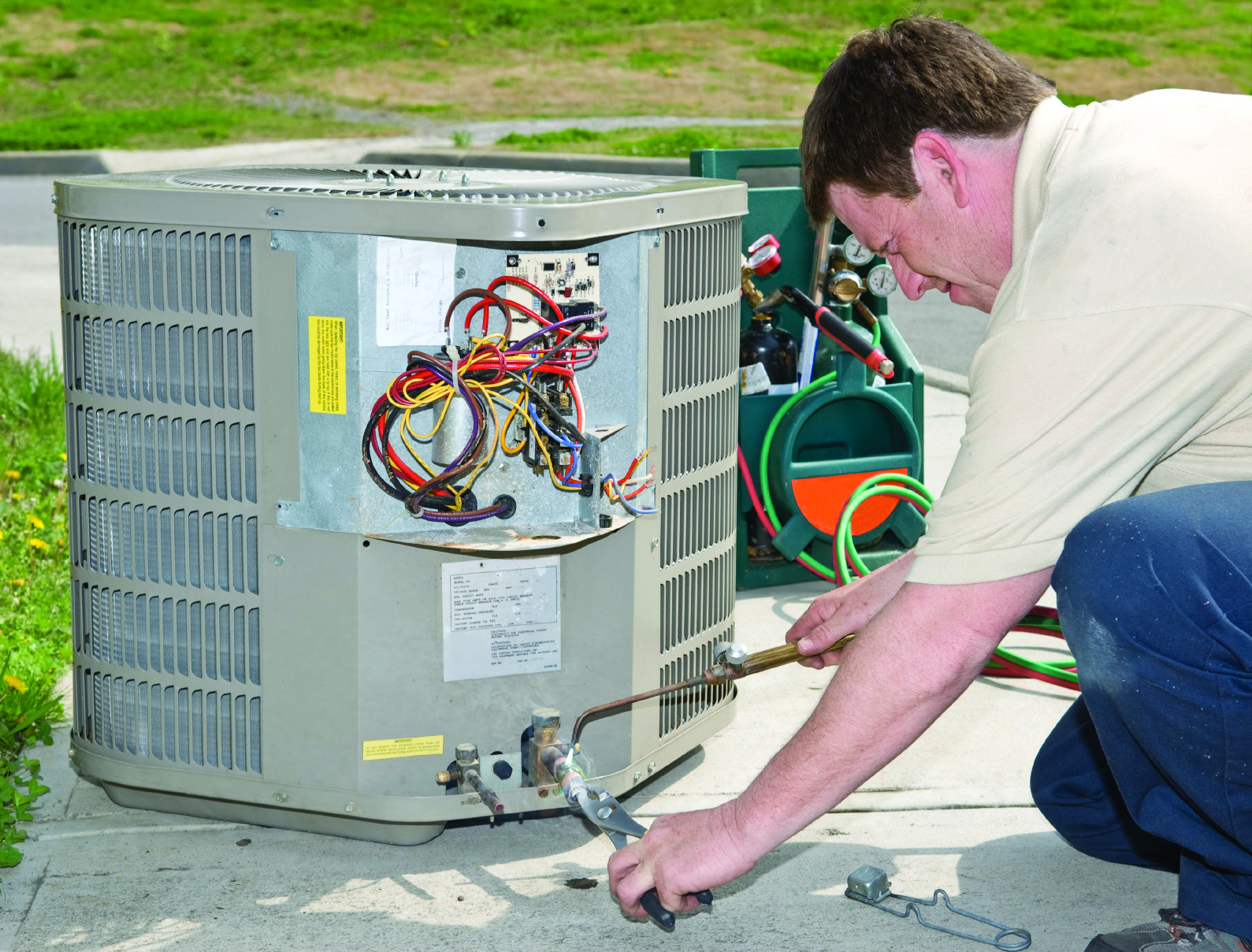
Credit: basc.pnnl.gov
Frequently Asked Questions Of What Is A Mechanical Air Conditioner
What Is The Difference Between Mechanical And Electronic Air Conditioners?
The difference between mechanical and electronic air conditioners is that mechanical ones have turning knobs to set a temperature range, while electronic ones allow for specific room temperature settings. Mechanical air conditioners have old-school analog controls.
How Does A Mechanical Air Conditioner Work?
A mechanical air conditioner works by circulating air and using specialized chemicals to cool or heat a space. It contains a fan, evaporator coils, and a compressor. The fan draws in air and circulates it over the coils, which remove heat and cool the air.
What Is The Difference Between Manual And Mechanical Air Conditioner?
A mechanical air conditioner circulates air to cool or heat a space using a fan, evaporator coils, and a compressor. It features old-school mechanical or analog controls typically found in window air conditioners.
What Is The Difference Between Mechanical Ventilation And Hvac?
Mechanical ventilation circulates air within a space, while HVAC (heating, ventilation, and air conditioning) controls temperature and humidity levels.
Conclusion
Mechanical air conditioners, also known as window air conditioners, are devices that help cool or heat a space by circulating the air within it. These air conditioners consist of a fan, evaporator coils, and a compressor. The fan draws in the outside air and circulates it over the evaporator coils, which remove the heat from the air, effectively cooling it down.
Unlike electronic air conditioners, mechanical air conditioners feature old-school mechanical or analog controls. This simplicity provides benefits such as reduced maintenance and easy-to-use controls. While mechanical air conditioners may not offer the same level of precise temperature control as their electronic counterparts, they are still an effective option for cooling smaller spaces or individual rooms.
Mechanical air conditioners are a reliable and cost-effective solution for cooling or heating specific areas. With their straightforward functionality, they provide a practical cooling option for those seeking simplicity and convenience. Whether it’s for a home office, bedroom, or living room, mechanical air conditioners can provide the comfort you need during hot summer months or chilly winters.


